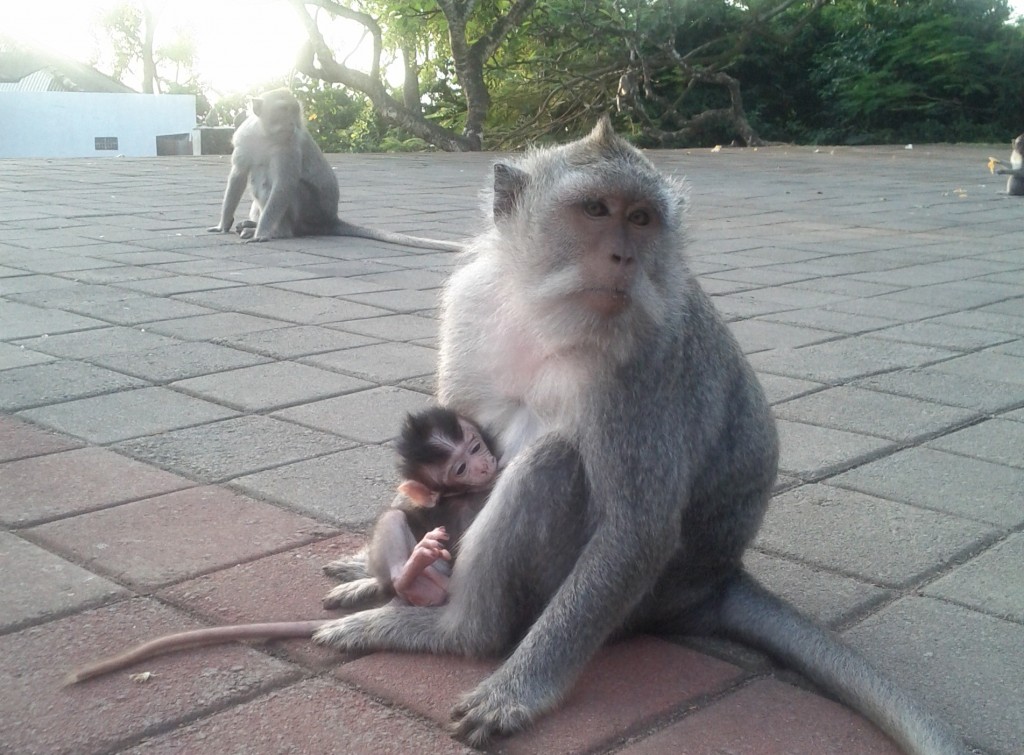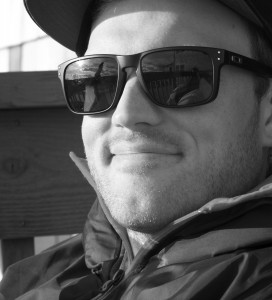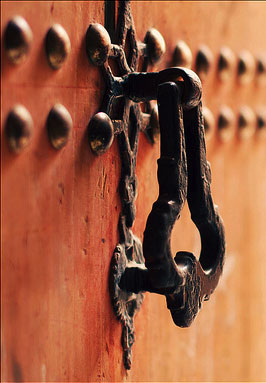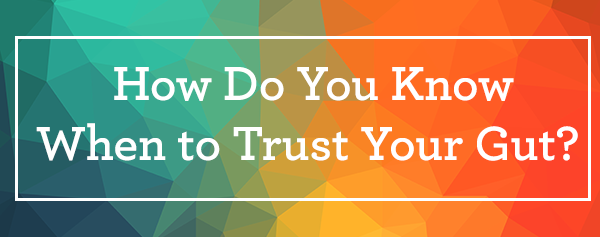 Written by Jenny Blake
Written by Jenny Blake
Have you ever had a gut instinct that rocked you to the core? You're in a job or a relationship, and you start getting a physical sense that it is time to make a change. These instincts often start as quiet whispers, and can be confusing and disorienting if we don't yet know what to do with them. And if you don't listen to the whisper, get ready: it will likely deliver a very uncomfortable WHACK instead.
Wake up! Our gut says. Listen to me!
Maybe you feel it as a pit in your belly. A lump in your throat. A flutter in your heart. But what does it mean? If we go straight to problem-solving with our brain, we might miss the true meaning.
Your Gut Has a Brain
Or more accurately, it is a brain.
According to the fascinating book mBraining:
- You have a complex and intelligent brain in your gut that contains over 500 million neurons and has the equivalent size and complexity of a cat's brain.
- The majority of nerves connecting the heart and gut brains to the head flow upwards. 90 percent of vagal nerve fibers communicate the state of our system to the head brain. Only ten percent provide communication signaling in the other direction from head to heart and gut brains.
- Over 95 percent of the serotonin used throughout the body and brain is made in the gut.
- Your gut brain exhibits plasticity and can learn, form memories, take on new behaviors, and grow new neurons.
- The gut brain is primal. It develops both evolutionarily and in the womb before the heart and head brains.
"The gut brain is the core of your deepest self . . . your subconscious sense of who you are and who you are not. It's also the intelligence that is at work dealing with all core identity-based issues and motivations such as needs for safety, protection, maintaining boundaries, and what you will physically or psychologically internalize or reject. Your enteric brain is primal to who you are."
—mBraining: Using Your Multiple Brains to Do Cool Stuff
Knock, Knock. Who's There? Your Gut, But I Can't Talk.
Our gut doesn't have the verbal sophistication that our head-brain does.
Our gut works on hunches; a hypothesis that something isn't right or there's an opportunity ahead, and it's up to us to suss out what that knock on the door of our consciousness really means, and what to do about it. We are left to interpret the meaning of the message, and then figure out how to take deliberate action.
That's why gut instincts can be terrifying sometimes. We may know it is time to act—to leave the job or the relationship, to move cities, to have a hard conversation, or to face a truth within ourselves—and yet the action itself takes tremendous courage.
Often our first reaction is refusal. Noooooo. No. It can't be that. I'm not ready for that. I can't possibly do that. I don't have the strength to face that head on.
But unfortunately we can't just stuff feelings back into the inconvenient box they came from. As the mBraining book explains, our gut is the defender of our boundaries and core identity, both critical to our health and happiness.
How Do You Know When to Trust Your Gut?
You can't always know with 100% certainty. Trusting your gut is like building a muscle—it takes time and practice. Another analogy might be taming a horse: you have to form a relationship with your gut instincts, and building that trust takes time.
If you're currently wrestling with an intuitive hunch or hit, here are some questions that help me:
How many times has your gut instinct been wrong?
That's not a loaded or leading question. Think back across the major decisions of your life: when you really took the time to get quiet and listen deep, then took action no matter how hard it felt, what percentage of the time did those gut instincts serve you well? In my case, it's 99%.
But in the rare instance that your gut was wrong, examine it: what could you have done differently? How might it inform future action? It is likely is that your gut instinct was on track, but the action you took may not have been exactly on track. That's okay! It's how you learn, and you can always correct course as you go.
What has more potential downside, taking the risk or staying in place?
Would your gut be speaking up if the answer was to keep things exactly as they are? In his book Antifragile: Things that Gain from Disorder, Nassim Taleb defines his term for risk work taking, those with high optionality: "The property of asymmetric upside (preferably unlimited) with correspondingly limited downside (preferably tiny)." See my related JB.me post, Which Risks are Worth Taking?
Or maybe you just need to frame the question differently:
What small next step would help alleviate this uncomfortable feeling?
Sometimes it's not about the big leaps or endings, but rather speaking your truth in a direct and honest conversation. Notice the spectrum of actions you could take: look for small steps within your comfort or stretch zone, without sending you into the panic zone of paralyzing anxiety and fear.
Is taking this action creating "clean" pain or "dirty" pain?
Certain actions are incredibly difficult and make your stomach flip, but you know that it's a "clean" pain—a necessary step for you to move on and live your best life. "Dirty" pain is dishonoring yourself. It's when you hurt because you are actively ignoring what is in your own best interest, in a way that is damaging and stressful to your well-being.
Tools for Getting Quiet
Exercise, talking to friends, and writing have always helped me, but the biggest difference in truly hearing my gut (not just my neurotic monkey mind) came from starting a meditation practice. I know, I know—I used to roll my eyes every time I read something like that too. But it really can be as simple as sitting with your eyes closed for five minutes before you start your day.
Check out the Lucent App I co-founded for help facilitating self-awareness and focus each morning—very simple meditation might just be the game-changer for you that it has been for me.
I wrote in a newsletter earlier this year that chaos is a doorway to opportunity. My dad often reminds me that's where the best art, music, and writing comes from anyway! Let the message be your muse.
I'd love to hear from you in the comments:
How about you: how do you "hear" your gut?
When do you know it's time to act on the information you pick up?
About Jenny
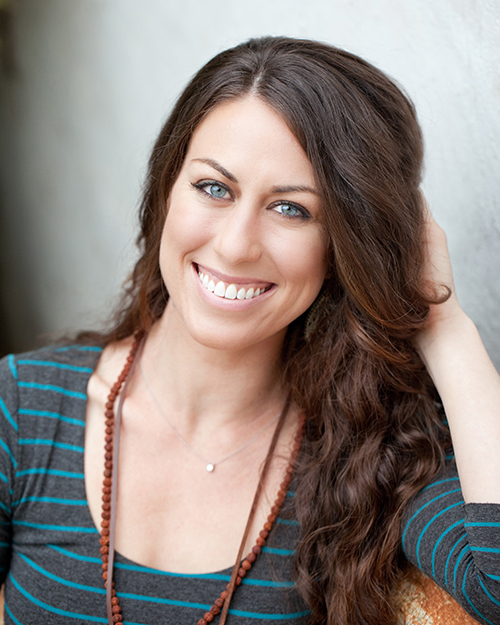 Jenny Blake is the bestselling author of Life After College, a career and business strategist and an international speaker who helps smart people organize their brain, move beyond burnout, and build sustainable, dynamic careers they love. Jenny combines her love of technology with her superpower of simplifying complexity to help clients through big transitions — often to pivot in their career or launch a book, blog or business.
Jenny Blake is the bestselling author of Life After College, a career and business strategist and an international speaker who helps smart people organize their brain, move beyond burnout, and build sustainable, dynamic careers they love. Jenny combines her love of technology with her superpower of simplifying complexity to help clients through big transitions — often to pivot in their career or launch a book, blog or business.
Today you can find her here on this blog (in it's seventh year!) and at JennyBlake.me, where she explores the intersection of mind, body and business. Follow her on Twitter @jenny_blake.

 Written by
Written by  Jenny Blake is the bestselling author of
Jenny Blake is the bestselling author of 
